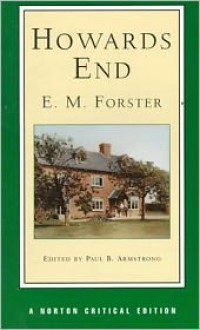The Barnes & Noble ReviewReaders familiar with E. M. Forster will recognize the words "only connect" as the anthem of his 1910 novel, Howards End, in which he portrays the often-strained relationships between the bohemian Schlegels (Margaret, Helen, and their brother Tibby, so labeled both...
show more
The Barnes & Noble ReviewReaders familiar with E. M. Forster will recognize the words "only connect" as the anthem of his 1910 novel, Howards End, in which he portrays the often-strained relationships between the bohemian Schlegels (Margaret, Helen, and their brother Tibby, so labeled both because of their expressiveness and their passion for the arts and because of their part-German ancestry) and the coolly aristocratic Wilcoxes. Forster further uses these relationships to explore the changes taking place in Edwardian England, including the rise of the middle and working classes and the first hints of the crumbling of the British Empire. Margaret first becomes connected to the Wilcox family when she befriends Ruth, the matriarch, with whom she feels a kinship that transcends both family and class lines. Ruth's dying wish — to leave her family's country house, Howards End, to Margaret — reveals the depth of their bond, but the Wilcoxes close ranks and vow never to disclose this wish to Margaret, determined to save their heritage from the racially mixed and caste-defying Schlegels. Ironically, Margaret later marries Henry Wilcox, Ruth's widower, and so comes into possession of Howards End anyway. But their marriage is doomed, in part, by their irreconcilable temperaments, and Margaret late in the novel expresses her wish for her overly reserved husband, the one thing that might save him: "Only connect." This all-too-often-quoted line has, in my opinion, done both Forster and the novel more harm than good, burying the novelist's otherwise avidly political writing under a wave ofmushysentimentalism. "Only connect" has left too many readers with a mistaken impression of Forster the spiritualist, Forster the proto-new ager. This impression has only been augmented by the Merchant-Ivory-ization of the novels into films that have largely ignored and glossed over the quite
show less

